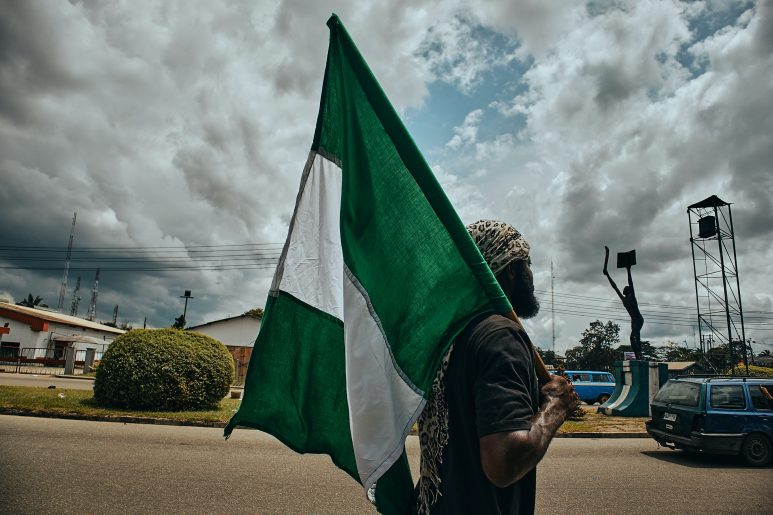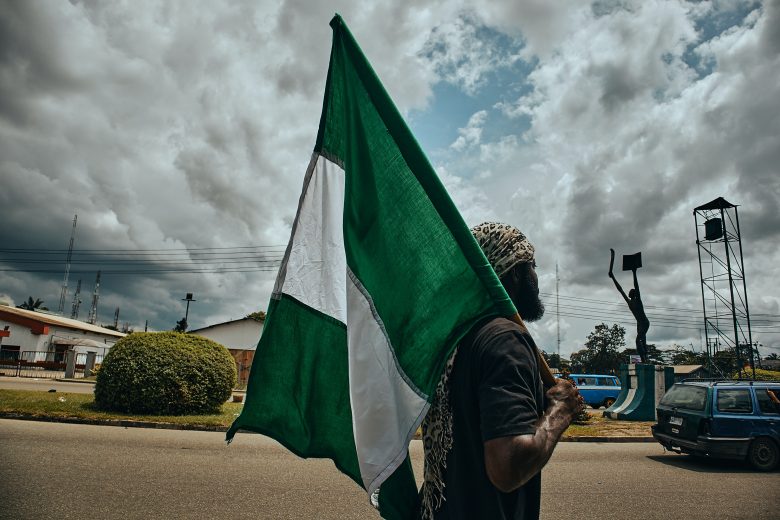By Hannah Ajala
Nigeria’s general elections recently saw over half of the country’s population taking to the polls on 25 February and a more recent gubernatorial election took place 18th March. As well as the numerous trending conversations and photos shared online, a key topic of conversation around the issues of tribalism kept popping up.
We really need to reject tribalism handed to us by our parents.
— Kemi Lala Akindoju (@lalaakindoju) March 2, 2023
Tribalism itself can be defined as loyalty to a tribe or other social group especially when combined with strong negative feelings for people outside the group. It is the state of being organized and advocating for a tribe which explains why people express advocacy through cultural beliefs, social foundations, and values. However, these characteristics have been abused by many individuals in Nigerian politics who tend to exploit and abuse many ethnic groups for political purposes. In a business-heavy and oil-rich country like Nigeria with a population of over 200 million people, it’s inevitable to find a plethora of tribes and cultures. However, tribalism has become a growing threat in the country.
Throughout a very tense election period, several views from key figures in Nigeria have openly shared their political views concerning ethnic groups – and that some ethnic groups are better off ‘sticking to their own’, in order to maintain traditional voting ways, which only creates further segregation. For more context that MDI will explore in this article, in Nigeria, there are three major ethnic groups in Nigeria, Yoruba, Hausa and Igbo, with hundreds of other ethnic groups commonly referred to as minor ethnic groups.
We should all be talking about police brutality, insecurity, fuel scarcity, poor healthcare, unemployment, lack of 24/7 electricity, inflation, corruption & poverty in our society but no we’re fighting one another over TRIBALISM issues.
We’re not ready for a better country.
— 🎙OLUOMO OF DERBY 🇳🇬 🇬🇧 (@Oluomoofderby) March 6, 2023
Nigerian media have been very vocal about issues that come from tribalism, and how it’s shaped a mentality over many rulers.
Austin Tam-George wrote that ‘Nigeria is perhaps the world’s greatest victim of identity politics – the politics of who you are, where you come from, and which deity you worship,’ for an article at the Vanguard.
Identity politics and especially tribalism, however, do not seem to be discussed in mainstream media, especially in the West. For Western media, Nigeria has a negative reputation; its politics are conveyed as corrupt within an unequal society. Analyses and discussions that look at tribalism, which shapes the country’s identity, and can explain Nigeria’s political and societal evolution are absent in the western media landscape even on outlets that cover African issues in depth.
Twitter is full of discussions about tribalism in Nigeria, especially due to the elections. However, it seems that when mainstream media analyses the country’s political landscape the issues connected to tribalism which affect communities do not seem to be mentioned.
To understand the role of tribalism in Nigeria and to give context to the lack of media coverage, Media Diversity Institute spoke with researcher and project manager Opeyemi Ademola, who is based in Lagos, Nigeria.
MDI: Why have ethnic differences always been part of elections in Nigeria?
Opeyemi: Nigeria is a very diverse nation and it is important to involve every ethnic group in the growth and development of the nation with a multilingual society having 374 ethnic nationalities that speak 500 plus languages. The country was amalgamated by British colonial rulers in 1914, who brought together different ethnic groups and kingdoms under one political entity. As a result, the ethnic groups have had to navigate political and economic power-sharing arrangements over the years.
A 2015 research indicated that Lack of Trust and Unity is the major problem we have with ethnic issues in Nigeria elections Since 1960, Nigerians don’t have strong trust in the institutions, including the electoral system to protect their interest which also indicated that there are different politicians from different ethnic groups in power. This mistrust often leads to the resort of ethnic or religious affiliations for protection and advocacy.
In summary, ethnic differences have always been part of elections in Nigeria because of historical factors, the political elite’s exploitation, unequal resource distribution, and lack of trust in institutions. To ensure peaceful and fair elections in Nigeria, there is a need for institutional reforms, more inclusive governance, and an end to the manipulation of ethnic and religious sentiments for political gain.
MDI: What change would you like to see regarding tribalism in politics in general?
Opeyemi: The nation is aware of the current differences but is very essential for political leaders and the nation at large must prioritize inclusivity in governance and promote policies that help promote, understanding, justice, and genuine diversity. This will help to measure and promote equality, the distribution of power and resources among different ethnic groups for one vice, and unity.
Addressing the economic differences that might fuel tensions due to poverty, unemployment, and social inequality among ethnic groups. Education also plays a vital role in the growth and unity of the nation – this means the people and politicians should establish a strong educational institution to combat tribalism in politics and ethnic groups. Education programs aimed at promoting inter-ethnic and inter-religious understanding, tolerance, and peaceful co-existence during and not during elections in Nigeria.”
We’ve seen something similar to this type of tribalism happen before. In Libya, former late President Muammar Gaddafi who led the country from 1969 until his death made a vow to eliminate tribalism in an attempt to unify Libya. Gaddafi had in fact expressed surprising remarks about Nigeria’s growing issues with tribalism and had expressed controversial comments about Nigeria’s sovereignty. Nigeria’s newly elected President, Bola Ahmed Tinubu, a Muslim from the Yoruba ethnic group, has been described as a “tribal evangelist,” and has been supporting an ethnic agenda throughout his campaigning, favouring his Yoruba heritage and importance throughout Nigeria as the most ‘dominant’ ethnic group. During the time of campaigning, many Nigerian leaders took to the streets and rallied to openly share their views with
local media. Newly elected President Tinubu’s campaign spokesman warned Igbo people in Lagos against “interfering” in politics in the state.
Onanuga, who is the director of media and publicity of the All Progressives Congress Presidential Campaign Council, issued the warning in a tweet where he said, “Let 2023 be the last time of Igbo interference in Lagos politics. Let there be no repeat in 2027. Lagos is like Anambra, Imo, or any Nigerian state. It is not No Man’s Land, not Federal Capital Territory. It is Yoruba land. Mind your business.”
‘We recruit our leaders, not according to their abilities or the brilliance of their ideas, but based on tribal identity, political zones, and religious faith,’ Austin Tam-George continues in his article for the Vanguard. This growing trend has been present in Nigeria for decades and led to the Biafra war in 1967. The effects of this war are still present today yet it seems that this clear devastation of tribalism hasn’t caught enough media attention over the decades since it happened.
The media has a responsibility to share not only the historical root behind tribalism but also its strong link to leaders who do not seem suitable to be placed in such a high position, especially if they have a biased opinion on cultures and religions. If Nigerian leaders are confident enough to share their dislike of other ethnic groups live on television, in interviews and in print, their position should be questioned immediately. The media should reflect a fair society that doesn’t convey favouritism over religion or ethnicity. The media and politics should work hand in hand to represent every individual, giving them the freedom and autonomy to have everyone’s interest at heart.
Photo by Emmanuel Ikwuegbu on Unsplash


